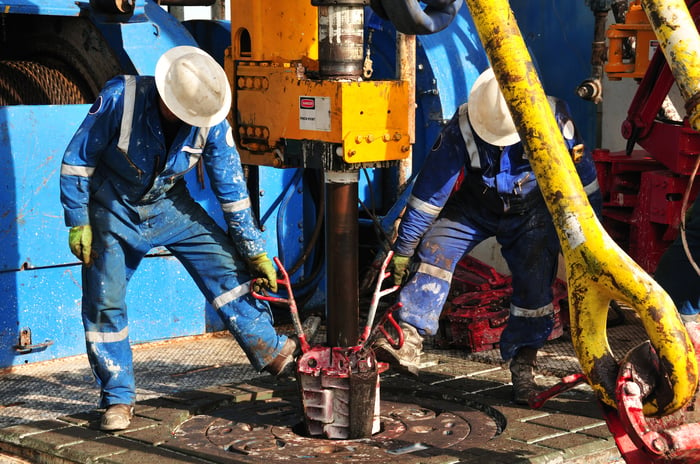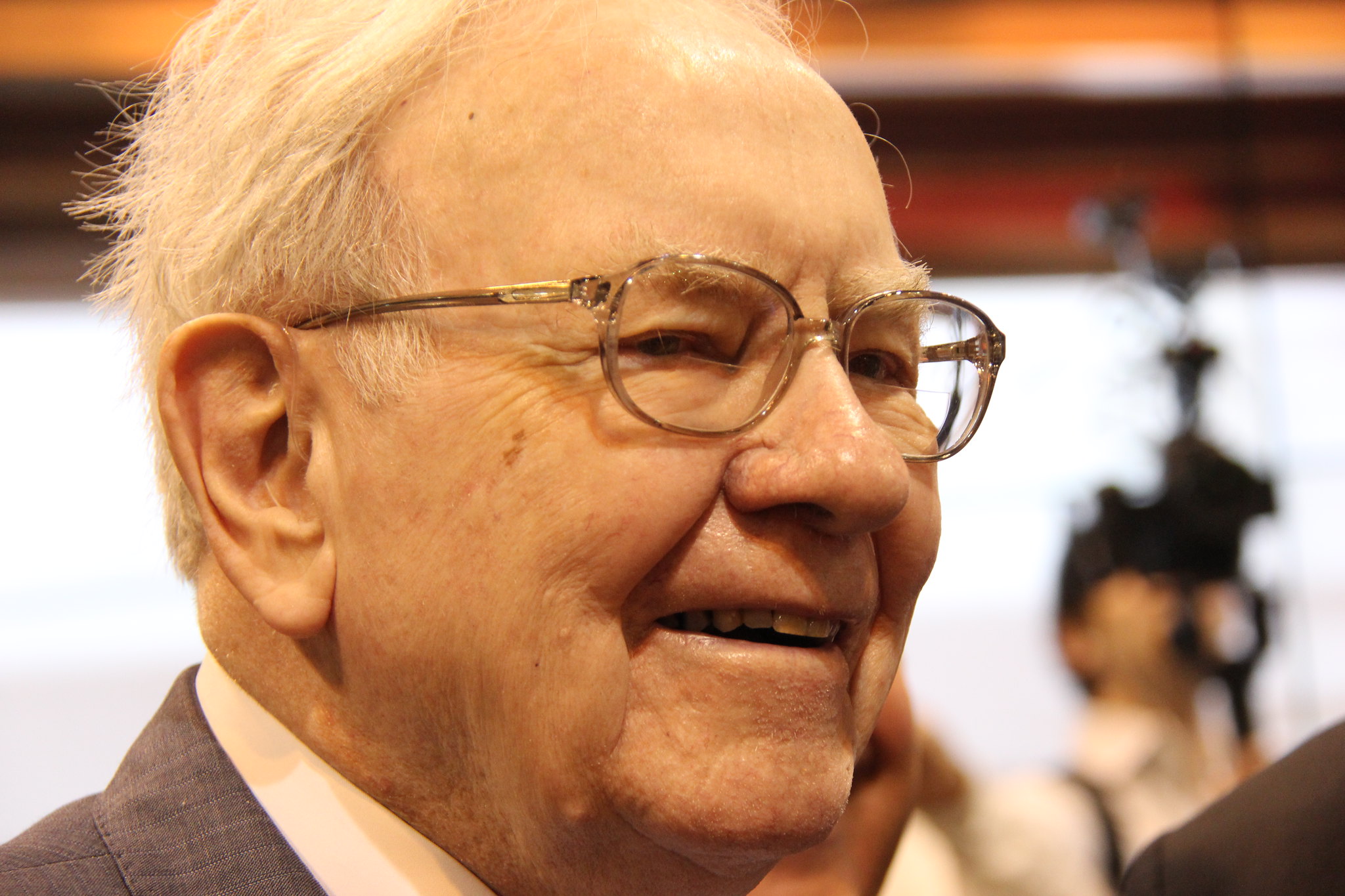Although Warren Buffett has been a net seller of stocks for eight consecutive quarters, he can’t stop buying shares of these three industry-leading businesses.
It’s been a banner year for Wall Street, and an even better year for billionaire Warren Buffett. Through Nov. 27, shares of Berkshire Hathaway (BRK.A 0.07%) (BRK.B -0.01%) have catapulted higher by 33.4%, which would represent its best annual return since 1998.
The Oracle of Omaha’s consistent outperformance of the benchmark S&P 500 spanning almost six decades has led to investors closely monitoring his trading activity and, sometimes, riding his coattails to big gains. Thanks to quarterly filed Form 13Fs with the Securities and Exchange Commission, it’s relatively easy to mirror Buffett’s trades.

Berkshire Hathaway CEO Warren Buffett. Image source: The Motley Fool.
However, over the previous eight quarters, Berkshire’s chief has been a decisive net seller of stocks, to the tune of $166 billion. Buffett is an unabashed value investor, and there’s simply been little value to be found in one of the priciest stock markets on record, dating back to the early 1870s.
However, this doesn’t mean buying activity from the Oracle of Omaha has been nonexistent. Based on 13F filings through the first nine months of 2024, it’s plainly evident that there are three unstoppable stocks Warren Buffett wants to own for 2025.
Domino’s Pizza
For the first time in over six years, Berkshire’s chief didn’t purchase shares of what had been his favorite stock, Berkshire Hathaway, during the third quarter. But the one beloved consumer brand he did pile into was fast-food restaurant chain Domino’s Pizza (DPZ 0.81%).
If there’s one thing Warren Buffett knows very well, it’s consumer-buying habits. No matter how well or poorly the U.S. or global economy perform, people need to eat. Domino’s has always focused on attracting cost-conscious consumers and carries products (food and beverages) that are going to be purchased in any economic climate.
Something else Domino’s Pizza possesses that Berkshire Hathaway’s head honcho is a big fan of is trust with consumers. Approximately 15 years ago, Domino’s Pizza fessed up via its marketing campaign that its pizza wasn’t very good. Since this defining moment, the company has relied on product innovation and transparent marketing to keep customers loyal to its brand.
Furthermore, Domino’s Pizza has done a fantastic job of executing on its strategic initiatives. The company’s newest five-year plan, dubbed “Hungry for MORE,” promotes new food items, leans on technology to increase output and make products more consistent, and leverages its top-notch franchisees to grow the brand.
Perhaps the only issue for Domino’s is the relatively aggressive valuation investors have bestowed on the company. Although Domino’s Pizza is on track for its 31st consecutive year of international same-store sales growth, a forward price-to-earnings ratio (P/E) of 27 for a restaurant chain delivering mid-single-digit sales growth in a historically pricey market may be a tough pill to swallow.

Image source: Getty Images.
Occidental Petroleum
A second unstoppable stock that Warren Buffett clearly wants to own as we turn the page on 2024 is integrated oil and gas behemoth Occidental Petroleum (OXY 0.52%). Since the start of 2022, Berkshire’s brightest minds (led by Buffett) have purchased north of 255.2 million shares of Occidental.
There’s only one reason Warren Buffett would build close to a $13 billion position in an oil and gas stock: He believes the spot price of crude oil will remain elevated or head even higher. In addition to Berkshire’s CEO having a favorable long-term view of in-demand commodities, such as oil, there are macro factors working in the oil industry’s favor.
For instance, global energy companies were forced to slash their capital expenditures for roughly three years due to historic demand uncertainty during the COVID-19 pandemic. This lack of investment has tightened the global supply of oil, which would be expected to lead to a higher spot price. When coupled with Russia’s invasion of Ukraine and the uncertainties this leads to for Europe’s energy needs, it creates a perfect scenario for upstream and integrated operators to benefit from.
Among integrated energy companies — those that have midstream (transmission pipelines) and/or downstream (refineries and/or chemical plants) operations, in addition to their upstream drilling segments — none is more levered to their drilling operations than Occidental Petroleum. It generates a disproportionately high percentage of its sales and operating cash flow from drilling, which means a higher price for crude oil can lead to an outsized bottom-line benefit for the company.
Arguably, the biggest concern for Occidental shareholders as we prepare to enter the new year is the possibility of a U.S. recession. Even though recessions are historically short-lived, an economic downturn would be expected to adversely impact the spot price of crude. With Occidental’s cash flow so heavily weighted to its upstream operations, a recession would likely hurt it more than other integrated energy operators.
Chubb
The third unstoppable stock billionaire Warren Buffett has made crystal clear that he wants to own in Berkshire Hathaway’s $302 billion portfolio for 2025 is property and casualty insurer Chubb (CB -0.56%). The company’s stock received “confidential treatment” in Berkshire’s 13Fs from the midpoint of 2023 until Berkshire lifted the hood on its first-quarter trading activity on May 15.
There isn’t a sector Buffett enjoys putting his money to work in more than financials. Even though most financial stocks are cyclical and will therefore ebb and flow with the health of the U.S. economy, periods of growth last considerably longer than recessions. Patient investors (like Buffett) who purchase brand-name/market-leading cyclical stocks tend to be rewarded over the long run.
The great thing about insurance stocks is they typically enjoy exceptional premium pricing power in pretty much any economic climate. If a catastrophic loss occurs, insurers have justification to raise premiums. But even in situations where member claims are below average, insurers can lean on the inevitability of future adverse events as a reason to increase premiums. In short, insurers are boring, money-printing machines.
Another reason to appreciate Chubb is its focus on high earners, at least with its homeowner insurance segment. People with higher incomes are less likely to change their spending habits or fail to pay their bills (or premiums) during minor economic disruptions.
However, as with Domino’s Pizza and Occidental Petroleum, Chubb will contend with headwinds. If Treasury yields decline in the new year, Chubb will generate less interest income on its float — i.e., the premium collected that’s not been paid out via claims.
Additionally, Chubb stock is valued at a 78% premium to its book value, which is a stone’s throw away from a two-decade high. Further upside could be difficult to come by until Chubb grows into its current valuation.

